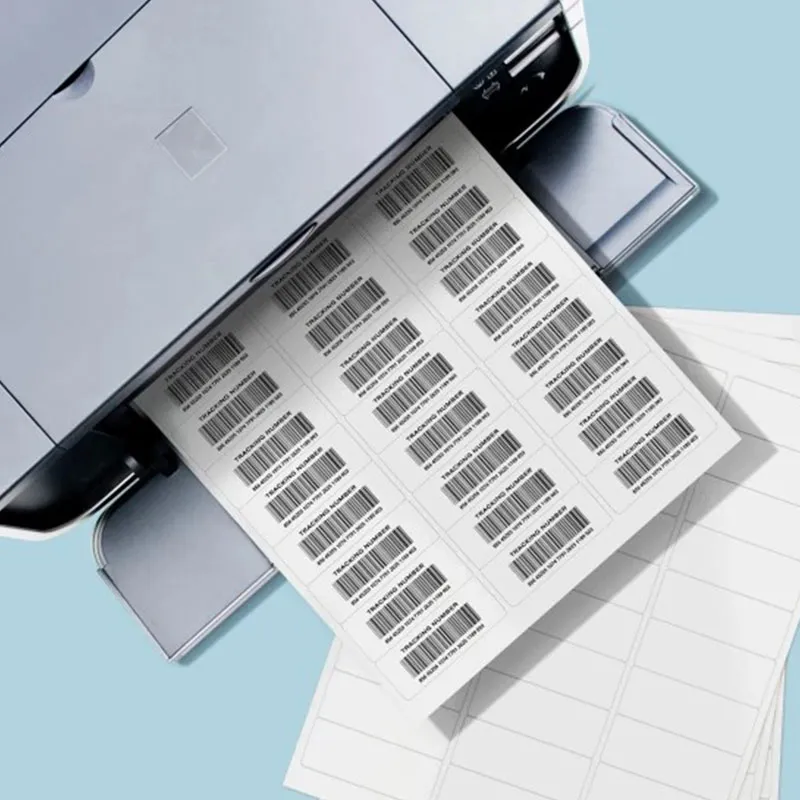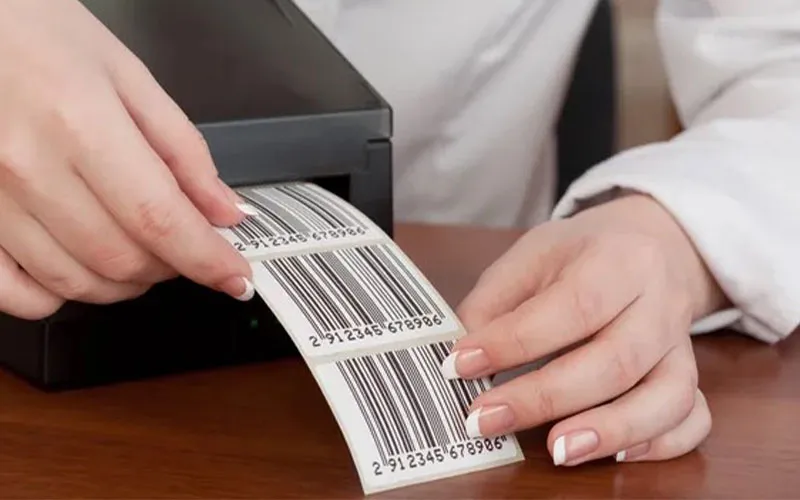Multi-industry barcode label solutions
What are barcode labels?
Barcode paper labels are identification tools with barcode patterns. They encode specific information to facilitate automated data collection and management. Barcodes are composed of a set of black and white stripes or squares. The barcode information is read by a scanning device to quickly identify the product number, price, batch, etc.
barcode label stickers are made of a variety of materials. Different label materials are commonly used in different environments, including thermal paper, PET, synthetic paper, and PP. Next, we will explore the specific needs of various industries and their corresponding barcode sticker labels application solutions!
1. Retail industry: thermal paper and synthetic paper labels
In the retail industry, the barcode label applications is crucial and runs through all aspects of product pricing, inventory management and customer checkout. The most common type of product barcode labels is thermal barcode label, which is widely used in scenarios such as product price labels, cash register receipts and promotional labels due to its low cost and fast printing. Thermal paper does not require ink or ribbons, and the printing process is simple, which is very suitable for retailers' quick replacement needs.
Synthetic paper labels are being adopted by more and more retailers, especially for product labels that need to be preserved for a long time, such as high-end products or membership cards. Synthetic paper has good durability, can effectively resist water and oil stains and is not easy to tear. While enhancing the image of the product, it can also ensure the durability and clarity of the label during use. The role of barcode labels is not limited to product management. They also play an important role in helping retailers synchronize online and offline inventory, improve product turnover and reduce inventory backlogs.
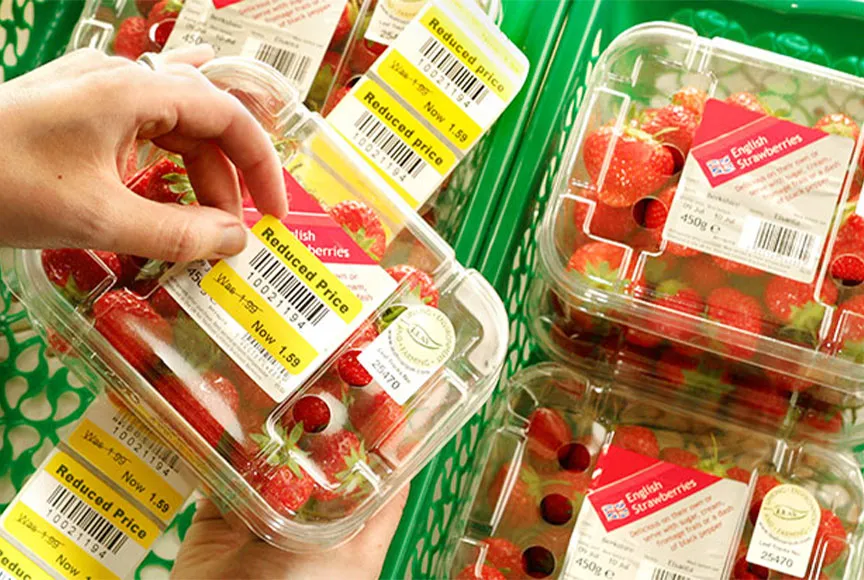
2. Logistics industry: PET and PP labels
In the logistics industry, the barcode label printing application plays a central role. They simplify cargo tracking, inventory management and transportation processes, significantly improving operational efficiency and accuracy.Logistics companies often choose outdoor barcode labels made of PET or PP materials because these two materials have excellent durability and scratch resistance, and can withstand friction, moisture and other harsh environmental effects during transportation and warehousing. PET labels are waterproof, heat-resistant and chemical-resistant, making them ideal for long-distance transportation, international freight and warehousing management, ensuring that information remains legible throughout the entire transportation process.
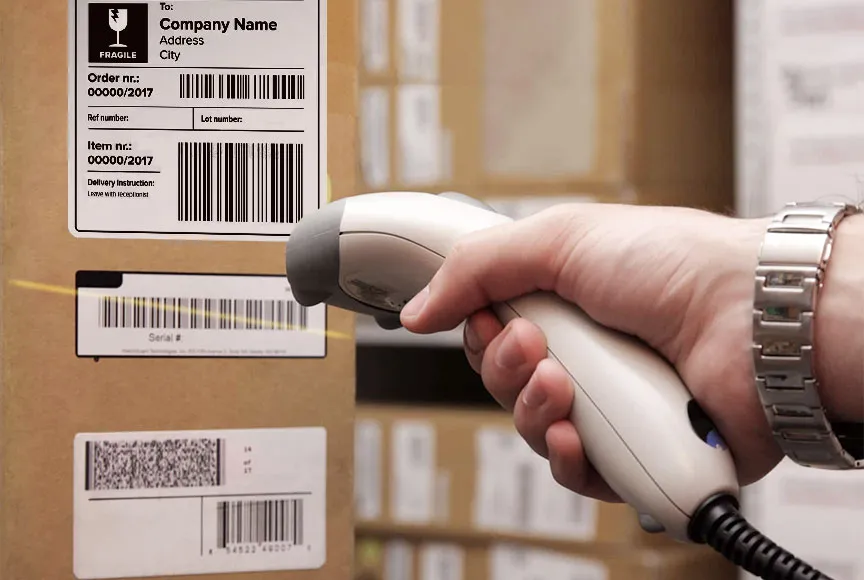
In contrast, although PP labels are relatively inexpensive, they are also suitable for lightweight packaging and warehousing labels. In order to ensure that barcode shipping labels remain clear for a long time during transportation, the logistics industry usually uses thermal transfer printing. This printing method can ensure that the labels are wear-resistant and non-fading, and avoid information loss due to friction or bad weather.
3. Medical industry: synthetic paper and PET labels
In the medical industry, the application of custom barcode label is particularly critical. They are mainly used for the management of drugs, medical devices, medical records and patient information, helping to improve work efficiency, reduce human errors and ensure patient safety. Medical device barcode labels are often made of synthetic paper and PET materials, which are the first choice for their durability and chemical resistance. synthetic barcode labels have high water resistance, oil resistance and tear resistance, and are suitable for labels such as medical devices, drugs and patient files. They can remain clear and non-fading in environments with frequent disinfection and wiping.
PET labels are more suitable for high-demand medical environments, especially in the identification of medical equipment and surgical instruments, because they are resistant to water, high temperature and can resist the erosion of disinfectants and chemicals, ensuring that the information is clear and readable for a long time. Barcode printer label roll isalso widely used in patient identification. By wearing identity labels with barcodes, hospitals can quickly and accurately confirm patient information, thereby improving the efficiency of internal information management in hospitals and reducing the occurrence of medical accidents.
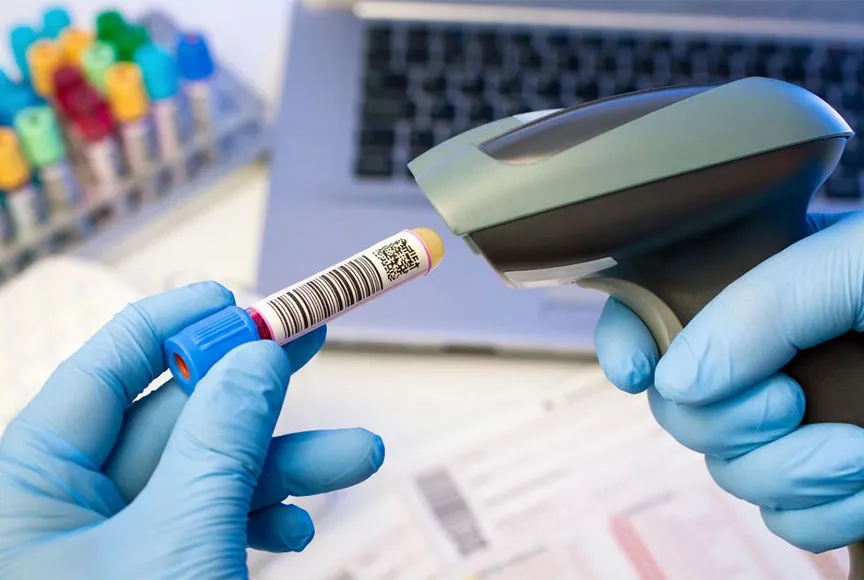
4. Manufacturing industry: meeting the needs of complex production environments
In the manufacturing industry, permanent barcode labels have become an indispensable tool. They are widely used in various links from raw material procurement, production and processing to finished product delivery, greatly improving production efficiency and accuracy. With the increasing demand for refined management and efficient operations in modern manufacturing, blank barcode label helps companies achieve intelligent management in all aspects from material tracking to inventory management and quality control. The manufacturing industry usually uses label materials such as synthetic paper, PET and thermal paper. Synthetic paper is often used for production line parts, finished product labels and storage labels due to its high temperature resistance, oil resistance and tear resistance. It can keep information clear in harsh production environments. PET labels have excellent high temperature and corrosion resistance and are widely used in metal processing and electronic product manufacturing to ensure that label information is still clear and readable under extreme conditions. Direct thermal barcode labels are mostly used for short-term applications such as packaging barcodes and shipping documents. They are easy to print and have low cost. Barcode label paper roll effectively support material tracking and production process monitoring in the production process. By barcode identification of each production link, managers can track the use of raw materials, the processing progress of parts and components, and the quality of finished products in real time, and find and solve problems in a timely manner. In addition, the combination of barcode labels with enterprise resource planning (ERP) and warehouse management systems (WMS) makes inventory management and production scheduling more efficient, reduces raw material waste and optimizes production plans. The application of barcode labels in quality control is also crucial, ensuring the quality traceability of each batch of products, helping to locate potential problems in production, and further improving product quality and production efficiency. In the warehousing and logistics links, barcode labels improve the accuracy of inventory management and the efficiency of sorting operations through rapid scanning.
In short, sticky barcode labels made of different materials can meet the unique needs of various industries. Combining material characteristics with industry application scenarios to choose the right labeling solution is an important means to improve efficiency and quality. Enterprises should accurately select label materials based on factors such as the use environment and durability requirements to ensure the accuracy and long-term nature of information transmission. Of course, if you are still not sure what kind of material you need, you can consult us! Sailing is a professional label factory that operates thermal paper, thermal labels, A4 labels, label materials and other products. It has a professional R&D team and rich production and manufacturing experience. The quality of label products is high-quality and stable, free design, free samples, and one-stop after-sales service. If you are in need of barcode label, contact us immediately!






 Thermal labels
Thermal labels
